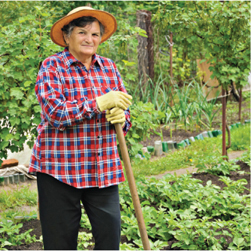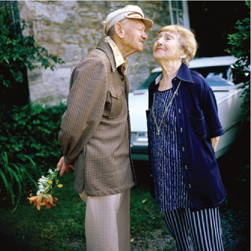Part VIIIThe Developing Person So Far: Late Adulthood
Biosocial

Ageism
Prejudice based on age is common and harmful in late adulthood. Many younger adults, and even older people themselves, underestimate the health and vitality of the old.
The best strategy for coping with aging seems to be selective optimization with compensation. Physiological functions change over time, but such changes can be taken in stride if individuals and communities adjust.
Disease and Aging
Virtually every disease and disability becomes more common in late adulthood. Impairment of the senses occurs to almost everyone and can result in serious losses. Every condition is affected by genes and by health habits decades earlier, and most can be mitigated by early detection and treatment. The optimal goal is compression of morbidity.
Longevity
Wear and tear, genes, and cellular damage all seem relevant to some aspect of aging but none has led to proven measures that halt aging. The maximum life span for every species is determined by genes. Calorie restriction succeeds in prolonging life in some species; application to humans is unproven. People who live more than 100 years have good genes and health habits and seem unusually active, happy and supported by their community.
Cognitive

Brains and Thinking
Some brain areas shrink with age, some kinds of memory fade, and thinking processes slow down, but new learning can produce new neurons and dendrites, and verbal memory is often unimpaired until very late in life. Sensory losses reduce input; remediating problems with vision and hearing may improve cognition. Ecologically valid cognitive assessments show most elders are able to use their minds to remain vital and independent.
Neurocognitive Disorders
Neurocognitive disorders become more common with age as cognitive reserves shrink. Alzheimer disease is the most common one in the U.S. It is rare until age 70, but the rate increases every decade after that. Another common NCD is caused by a series of strokes, each destroying part of the brain. There are many other causes, each with distinct symptoms. Some reversible problems, such as depression and polypharmacy, also cause cognitive problems.
New Cognitive Development
In later adulthood, many people develop their creativity via the arts or the life review. Some elders also become wise, but wisdom is not guaranteed in the old or completely absent in the young
Psychosocial

Theories, Activities, and Family
Self and stratification theories note that it is not easy to maintain vitality and joy in late adulthood, but most elders remain active, caring about political and religious concerns. Some move to a smaller residence or assisted-
The Frail Elderly
A minority of elders are termed “frail”: weak and failing, unable to maintain the activities of daily life or the instrumental activities. Frailty is partly the result of aging bodies and minds and partly the result of lack of self-